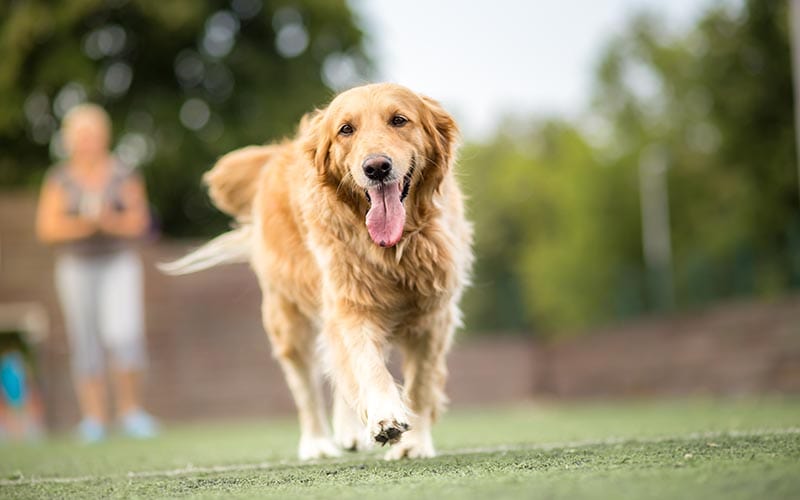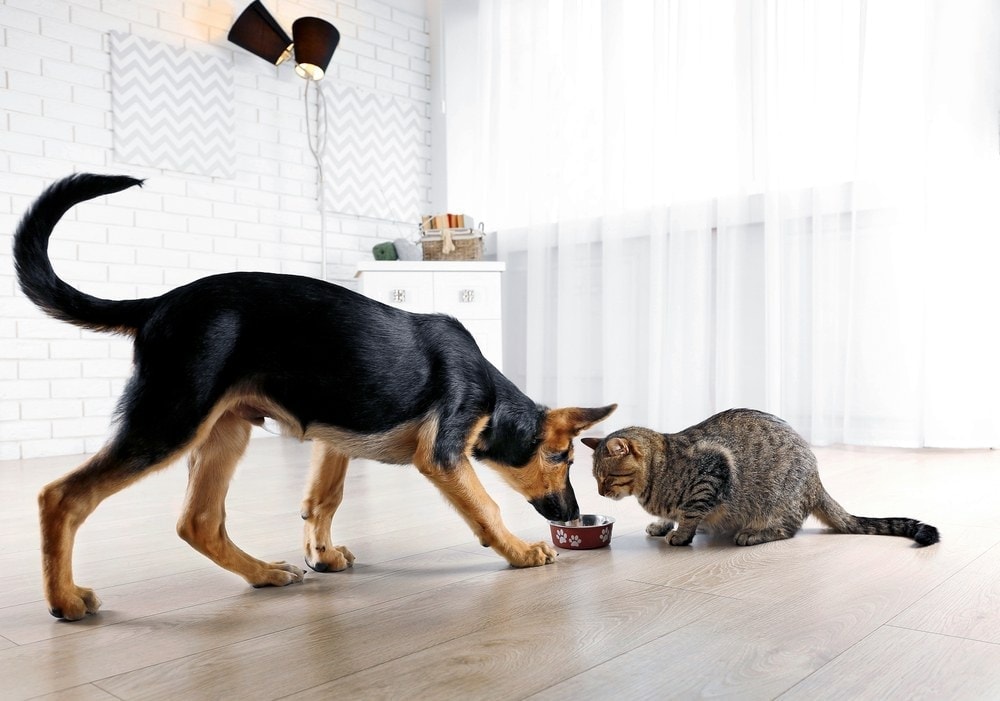Maltese vs Bichon Frise: Key Differences (With Pictures)

Updated on
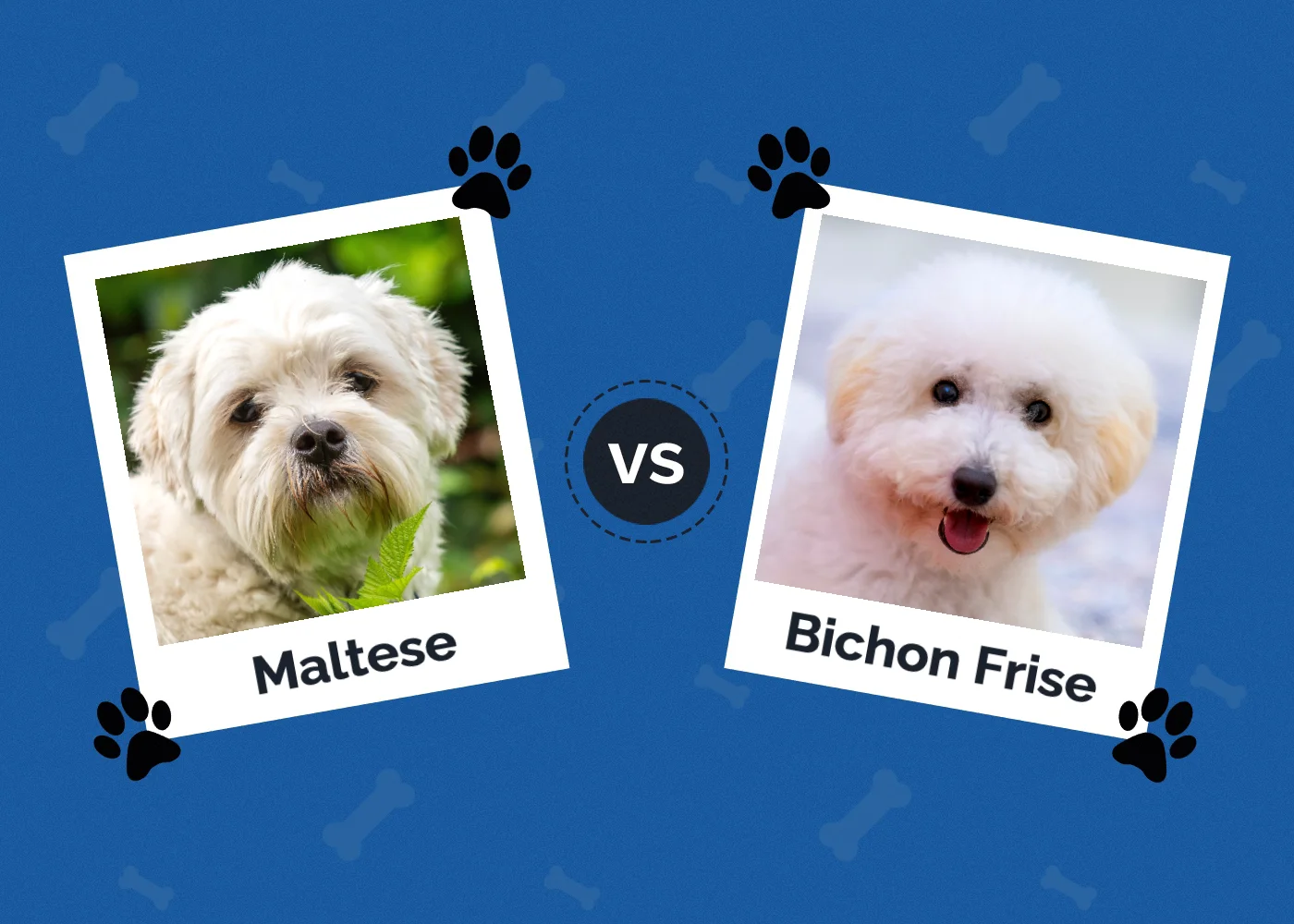
You’re looking to adopt a dog and want something small, fluffy, and friendly. You’re a fan of soft, white fur, too. But you have a choice: do you want a Maltese or a Bichon Frise? These dogs have a lot in common. In fact, they were originally bred for the same purposes. But there are some differences between the two types of dogs.
Malteses are smaller, more alert, and extra empathetic, but they can be stubborn and difficult to train. On the other hand, Bichon Frises are a little bigger, easier to train, and friendlier with strangers—but they can become overexcited easily. Read on to discover what is better for your needs!
Visual Differences
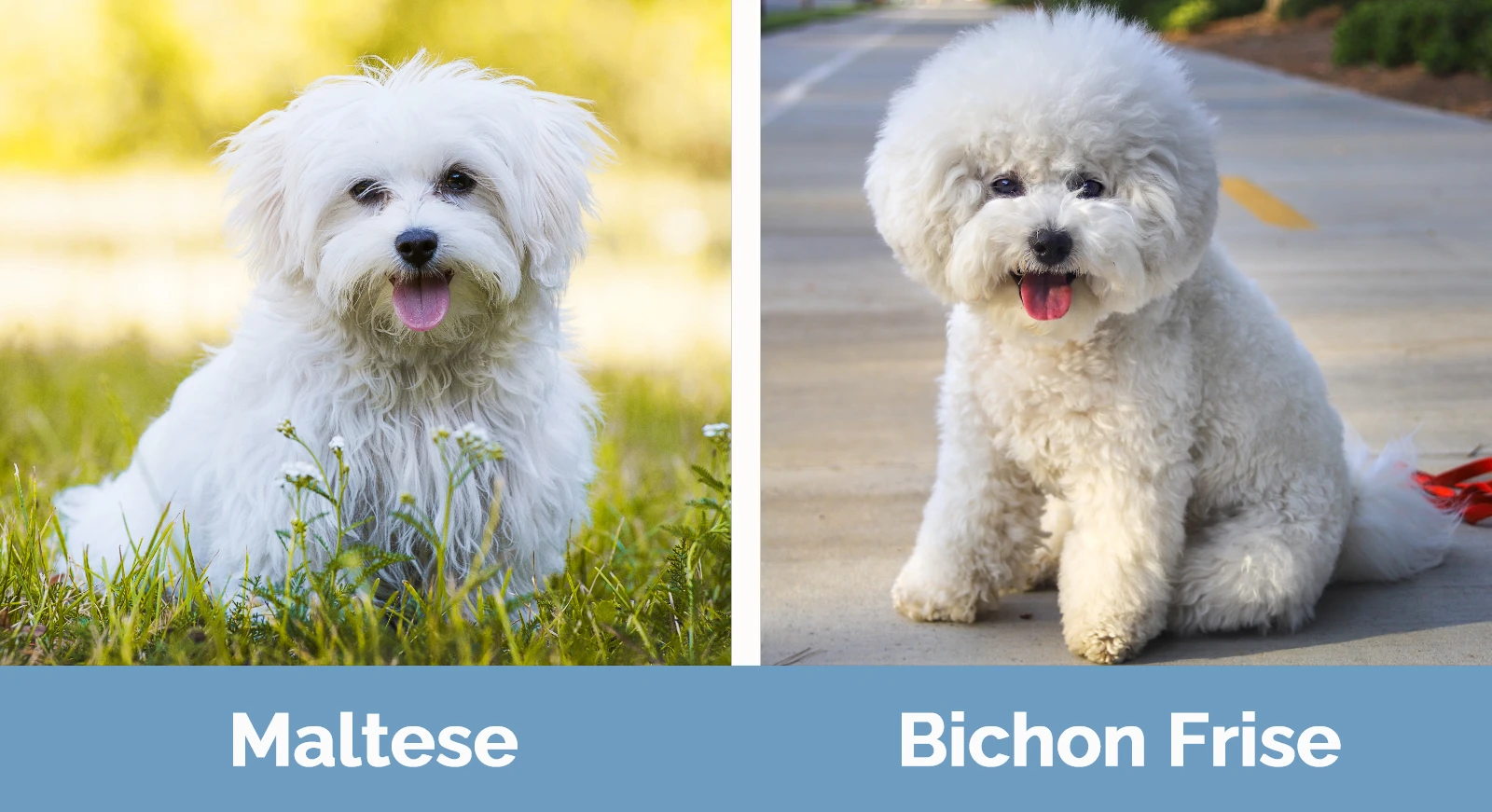
At a Glance
- Average height (adult): 7–9 inches
- Average weight (adult): 5–8 pounds
- Lifespan: 13–17 years
- Exercise: 1+ hours a day (can exercise indoors)
- Grooming needs: Moderate to high
- Family-friendly: Yes
- Other pet-friendly: Yes
- Trainability: Can be difficult
- Average height (adult): 9.5–11.5 inches
- Average weight (adult): 12–18 pounds
- Lifespan: 14–15 years
- Exercise: 2+ hours a day (can exercise indoors)
- Grooming needs: High
- Family-friendly: Yes
- Other pet-friendly: Yes
- Trainability: Clever and enthusiastic
Maltese Overview
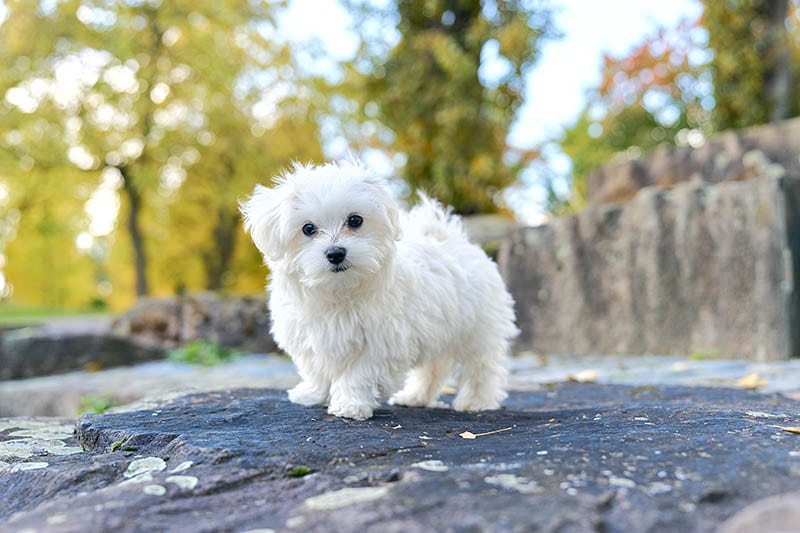
Appearance
Maltese dogs are most notable for their teeny size. Coming in at a maximum of only eight pounds, these dogs are smaller than many cats. They have bright white fur that is smooth and silky, with a slight wave. They have short snouts and floppy ears that can blend into their long fur.
Personality
Malteses are known for their emotional intelligence and empathy towards their owners, and if you ever own one, you’ll be sure to appreciate their loving nature. They are generally happy and excitable dogs that need a fair amount of exercise. They are also known for being quite alert, so they make excellent watchdogs. However, they can be anxious, especially around strangers.
Training
One of the difficulties of owning a Maltese is that they are sometimes hard to train. Maltese tend to be slow learners, requiring many repetitions to learn a new command or behavior. They also tend to be very stubborn and independent. Owners need patience and calm firmness—along with lots of positive rewards—when training a Maltese to help your pup learn to obey.
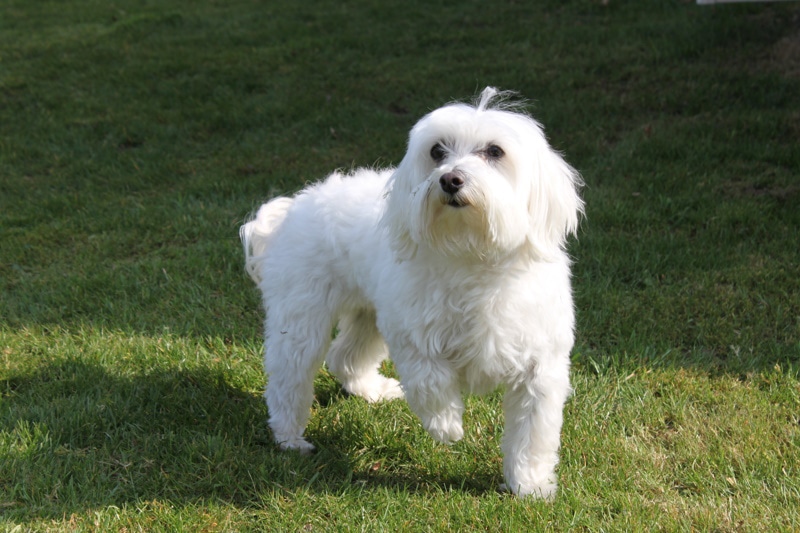
Suitable For:
Maltese dogs are great for families and multi-pet households, as they generally get along well with anyone they know well. You do need to be sure that children and other pets won’t play rough with your Maltese, as their size makes them fragile. They are also ideal for tiny apartments, as they’re so tiny themselves! They’re known for being extremely empathetic as well. They work well as watch dogs as they will bark to alert you of unfamiliar people. Owners of Malteses should expect to work hard training them, though, as they’re slow learners.
- Small size
- Empathetic
- Friendly
- Easy to Exercise
- Anxiety prone
- Physically fragile
- Struggles with strangers
- Can be difficult to train
- High-maintenance coat
Bichon Frise Overview
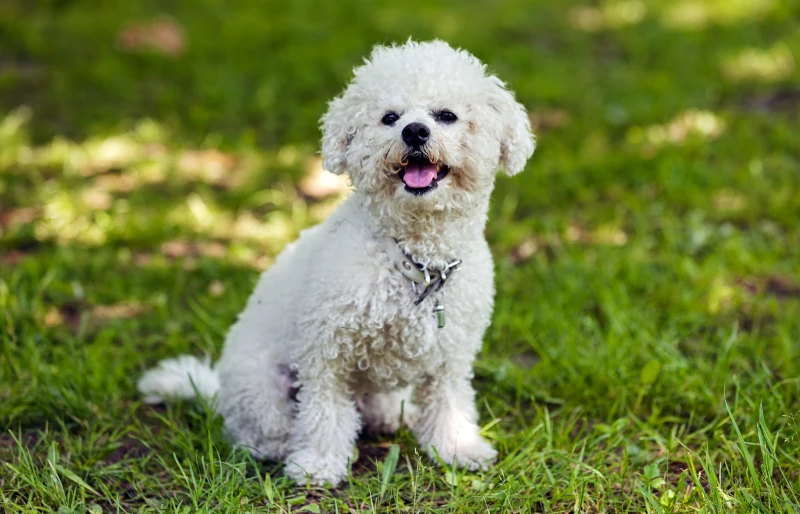
Appearance
Bichon Frise dogs are also small, but not quite as small as Maltese dogs. They tend to come in at around 11 to 18 pounds. And just like the Maltese, this breed also has bright white fur. The fur does differ in texture, though, with a curly, fluffy coat that resembles a Poodle’s.
Personality
Maltese dogs might be especially loving towards their owners, but Bichon Frises are friendly to everyone! These friendly dogs are ideal if you want a dog that won’t bark at strangers, but they definitely don’t work as guard dogs. Both breeds of dogs do have a lot in common, though, with their excitable natures, cheerful personalities, and close relationship with their owners.
Training
Bichon Frises aren’t the fastest learners in the world, but they make up for it with enthusiasm and eagerness to please. Unlike Malteses, which can be stubborn, most Bichon Frises will try their very hardest to obey you, and once they have a command down, they will be very obedient. Bichon Frises are often adept at doing tricks and can even be trained for agility. There is one weakness when it comes to training—their excitable nature means that they often have a hard time with bladder control. Housebreaking might be an extra challenge for your Bichon Frise.
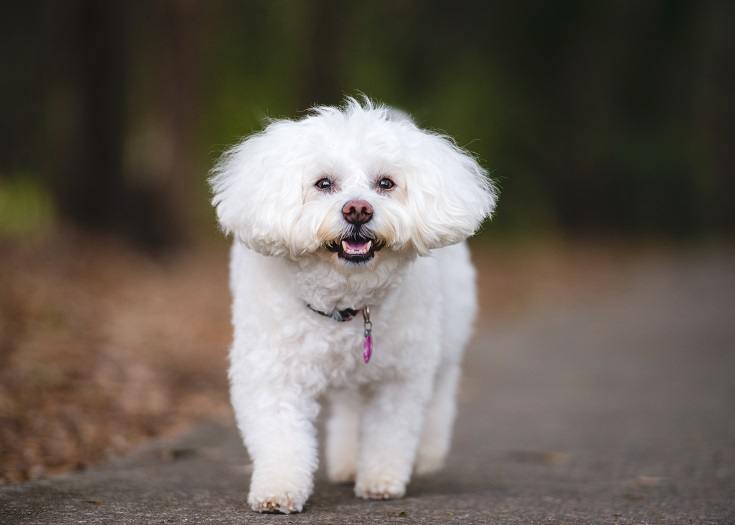
Suitable For:
Bichon Frise dogs, just like Maltese, are great for families, multi-pet homes, and apartment dwellers. They are generally higher energy than a Maltese and may need a little more space to exercise, but they’re still relatively easy to exercise. They also are more likely to be friendly to strangers, making them a better choice if you want to take them out of the house with you but a worse choice for a watchdog.
- Excitable
- Energetic
- Friendly to strangers
- Loves doing tricks
- A little sturdier than Maltese
- Difficult to housebreak
- High-maintenance coat
- Can get overexcited
Which Breed Is Right for You?
As you can see, there are different reasons to pick a Maltese over a Bichon Frise or vice versa. Maltese are tinier, which some owners love, but are also more fragile. Both have similar exercise and grooming needs. While both have similar happy, friendly personalities, Bichon Frises tend to be a little friendlier with strangers and have higher energy, while Malteses are more alert and empathetic. Whichever dog you choose, you’ll be sure to love the bond that you can form with one of these dogs!
Read Also:
- Is a Frog an Herbivore, Carnivore or Omnivore? Vet Approved Facts & FAQ
- 18 Types of Pet Frogs (With Pictures)
Featured Image Credit: Left – Maltese (David Atkins, Pexels) | Right – Bichon Frise (Anna Bondarenko, Pexels)



